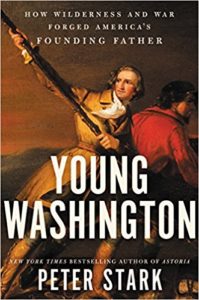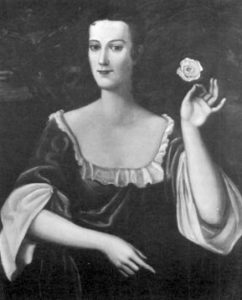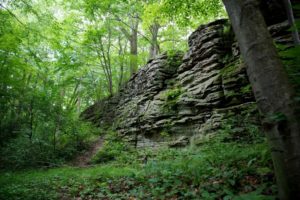
Young Washington by Peter Stark
 In writing his new book, Young Washington, Peter Stark utilizes an imagination fueled by his experience as an outdoorsman both prior to, and in preparation for, his reconstruction of the man Washington was before he became the man he wanted to be. The most recent Claremont Review of Books has an article about Theodore Mommsen by Joseph Epstein, in which the following quote appears:
In writing his new book, Young Washington, Peter Stark utilizes an imagination fueled by his experience as an outdoorsman both prior to, and in preparation for, his reconstruction of the man Washington was before he became the man he wanted to be. The most recent Claremont Review of Books has an article about Theodore Mommsen by Joseph Epstein, in which the following quote appears:
… [Mommsen] wrote that imagination “is the author of all history as of all poetry.†By aligning the two, history and poetry, he surely meant that documents, inscriptions, accurate chronology alone are never sufficient in themselves to explain the past. Imagination is required to connect the dots, fill in the background, limn the characters of key actors, discover and reveal complex motivation, grasp larger movements.
This is an apt quote for Mr. Stark’s accomplishment in Young Washington. Stark’s descriptions of what it must have been like to trudge through thick forests and navigate icy rivers have a ring of authenticity because Stark has had such experiences. However, he is careful to make it obvious when he is musing about Washington versus recounting facts of which the reader can be relatively certain. His writing is engaging and thoughtful. The book is informative without being pedantic, and accessible without being superficial.
Several things stand out in Stark’s book.
Washington did not spring into existence as the fully formed demigod depicted in the ludicrous painting by Parson Weems. While it’s obvious on its face, callow is not too strong an adjective to use in describing Washington in his 20’s.
Many historians have noted Washington’s ambition and fixation on reputation. Everyone has to grow up. Everyone has to make mistakes along the way.  Washington was no exception and provided many cringe-worthy actions that contributed to the man Washington became. For example, he was obsessed with his best friend’s wife, Sally Fairfax. While this is ground that has been covered by others, Stark provides context and depth when he quotes from a letter that Washington wrote to her after finally coming to terms with the fact that it was not to be:
Tis true. I profess myself a Votary to Love — I acknowledge that a Lady is in the Case — and further I confess, that this Lady is known to you. Yes Madam, as well as she is to one, who is too sensible of her Charms to deny the Power, whose Influence he feels and must ever Submit to. I feel the force of her amiable beauties in the recollection of a thousand tender passages that I could wish to obliterate, till I am bid to revive them. — but experience alas! Sadly reminds me of how Impossible this is.
Later in the letter he makes one more passionate plea,
One thing, above all things in this World I wish to know, and only one person of your Acquaintance cans solve me that, or guess my meaning.
He desperately wanted to know if she returned his affection.
 Stark takes the time to explain the circumstances in which Washington composed this raw and painful missive. Washington was on the brink of a battle with the French in which he would be in harm’s way – and he was also engaged to marry the wealthy widow Martha Custus. In Stark’s words:
Stark takes the time to explain the circumstances in which Washington composed this raw and painful missive. Washington was on the brink of a battle with the French in which he would be in harm’s way – and he was also engaged to marry the wealthy widow Martha Custus. In Stark’s words:
On the brink of battle, or marriage, or death, Washington had to know whether Sally loved him. He could not ask directly, of course, should the letter fall into some other hands. In the context of everything he wrote before, it is difficult to come to any other conclusion than that is what he so desperately wished to know. Only Sally could tell him.
She never did.  Although, at the end of the book Stark cites a wistful quote from her decades later in a letter to a relative. “I know now that the worthy man is to be preferred to the high-born.â€
Another element that stands out in Stark’s narrative is that even while Washington was a callow youth, he was also a figure of monumental importance to the history of the United States – decades before the Revolution.
 Washington was substantially responsible for helping to ignite what Americans refer to as the French and Indian War, which was, in fact, a war on a nearly global scale. On May 27, 1753, Washington, leading a group of Indians, attacked a group of 35 French soldiers sleeping in a U-shaped glen with rocky walls – though there is disagreement about who fired first. Regardless, Washington soon found himself nearly powerless to control the savagery of his indian allies.
Washington was substantially responsible for helping to ignite what Americans refer to as the French and Indian War, which was, in fact, a war on a nearly global scale. On May 27, 1753, Washington, leading a group of Indians, attacked a group of 35 French soldiers sleeping in a U-shaped glen with rocky walls – though there is disagreement about who fired first. Regardless, Washington soon found himself nearly powerless to control the savagery of his indian allies.
The French, just roused from sleep, only fifty yards away, scrambled from their lean-to shelters. Â Others sitting around the smoldering campfires dropped their breakfasts, grabbed their muskets, and took cover as best they could behind trees and rocks.
Fifteen minutes later, the battle was all but over. “What remained were the groans of the French wounded.â€
The French leader had fallen to the ground, having taken a musket ball. A thirty-five-year-old ensign in the colonial regulars, he belonged to a large French-Canadian military family that descended from French nobility. He made it known who he was — Ensign Joseph Coulon de Villiers de Jumonville. He also communicated that he carried a message to deliver to Colonel Washington — a summons.
….
It warned that Contrecouer [the Commander at Fort Duquesne] had heard from the Indians that Colonel Washington at the head of an armed force had entered the lands of his Majesty, the King of France, and emphatically requested, in the name of the king, that he depart over the mountains “in Peace.†Claims by Virginians to have purchased Indian lands at the Forks of the Ohio wer so weak as to require, if necessary, eviction by force, he wrote, and as it was Commander Contrecoeur’s intention to keep the peace between the two Crowns, Colonel Washington would have to answer for any act of hostility . “Whatever your Schemes may be,†concluded Contrecoeur, “I hope you will show Mr. Jumonville all the respect that an Officer deserves, and that you will lend him back to me again with all Speed, to acquaint me with your intentions.â€
Washington could not understand it. Â He took the message from the French party. Â He began to walk back to his own men to study it more carefully.
When Washington stepped away, his ally the “Half King†stepped forward and slammed a tomahawk into the frenchman’s skull – several times.
The blows split open Ensign Jumonville’s skull.  Letting go of the bloody tomahawk, the Half King reached down and scooped out the gray mass of Jumonville’s brain, held it up, kneaded it through his fingers, as if washing his hands in Jumonville’s essence.
…
In both his first combat and his first taste of Indian-style warfare, the twenty-two-year-old probably watched dumbfounded in horror.
This was not Washington’s proudest moment. Jumonville had definitely not been shown “all the respect that an Officer deserves.†Heedless of the consequences, Washington had ignited a war. He could have approached peaceably and opened communication with French. In an example of that imagination referred to at the beginning of this review, Stark muses:
Did he [Washington] reflect on what had just occurred? Had it unfolded as he might have hoped, or did it seem wildly out of control and shockingly violent to him?
This was Washington’s second foray into the Wilderness. On his first sojourn he had delivered a message to the French at Fort Duquesne, letting them know of British claims to the region. He had been treated much more gently by the French than had the unlucky Jumonville by Washington’s forces.
Regardless, Washington amazingly did not suffer reproach for his actions. And Washington’s reputation was actually bolstered by his actions during the subsequent hapless campaign of Braddock – see the review of Braddock’s March here.
And after that disaster there was another campaign to oust the French from Fort Duquesne in which Washington was also a participant. After the last (successful) campaign (the French left without a fight) Washington had, in Stark’s words “lived for many, the equivalent of a lifetime.â€
But what had he done? Stark sums it up:
At age twenty-three, as a young aide-de-camp, he survived the horrible slaughter of Braddock’s defeat, delivering the dying general’s requests for reinforcements as men groaned and screamed along the midnight trail. Before he turned twenty-four, he had taken charge of the entire Virginia Regiment. He had to feed it, clothe it, pay it, and, sometimes most difficult of all, discipline it. When he was twenty-five, trying to bring discipline, he swung two of his men from a forty-foot gallows and had to bear that weight. His circle of responsibility ever spread and deepened. At twenty-six, he witnessed the nightmare spectacle of his own men shooting their comrades-in-arms in the foggy dusk, and tried to stop it. From a very early age, his choices, actions, and inclinations bore profound consequences for those around him.
Those things we learn, we learn by doing. The experiences, both on the field and with the British bureaucracy, were both formative and practical for the Washington of 1775 – 1783.
The final observation this reviewer will make about both the Washington of the 1750’s and the Washington of twenty years later is the relationship between habit, character, and imagination. Washington didn’t start out as the stoic, iron-disciplined, selfless leader he became.  Contrast the love-struck youth with the man who led the Continental Army for 8 years (without pay), willingly surrendered his commission (when he likely could have been made king) in 1783, presided over the Constitutional Convention in 1787, was elected unanimously to the presidency twice, and set the precedent of peaceful transition of power by not accepting a third term. How does one reconcile these two versions of Washington? Stark asserts that Washington imagined a grander vision for himself and the role he was to play.
Like Benjamin Franklin, Washington recognized the need to develop and maintain good habits and self-discipline. Â Many biographers have referred to the fact that at the age of 16 he copied by hand a list of 110 rules on civility compiled by 16th Century Jesuits. He took these to heart and practiced them assiduously. In the absence of a father (who died when Washington was eleven years old), Washington sought guidance from where he could. Everybody has to start someplace.
He was fearless when it came to physical danger, because he believed that Providence had decreed something important for him. Stark, like others before him, noted that Washington saw himself as an actor on the stage of history.
Biographers have noted that Washington loved the theater, and especially the play Cato, and seemed to think himself an actor on the stage of great events. In reading his letters and following his unfolding life, one senses that much of what he did, he did with an eye on posterity. He leaves the impression that he both participated in events and at the same time watched himself participating, monitoring the effectiveness of his performance. Striding across the stage, he thrived on the adulation of an audience. Later in life, he kept count of the ladies who attended events in his honor.
Washington was a man who liked women and enjoyed their company, but the General and President had larger motivations than had that of the young Colonel. Washington looked increasingly to posterity. For example – Washington’s address to the Continental Army before the battle of Long Island on August 27, 1776:
The fate of unborn millions will now depend, under God, on the courage and conduct of this army. Our cruel and unrelenting enemy leaves us only the choice of brave resistance, or the most abject submission. We have, therefore, to resolve to conquer or die.
Or in his letter of farewell to the army in 1783:
… it is yet to be decided, whether the Revolution must ultimately be considered as a blessing or a curse: a blessing or a curse, not to the present age alone, for with our fate will the destiny of unborn Millions be involved.
The perfection of his character increased in importance to Washington as he matured.
I hope I shall always possess firmness and virtue enough to maintain (what I consider the most enviable of all titles) the character of an honest man … Washington in a letter to Alexander Hamilton, August 28, 1788
Character is perfected by action. Washington serves as an example of what is possible when a person actively and intentionally pursues virtue.
But the impulses and desires don’t weaken; it is rather the case that we get stronger.
Aristotle doesn’t go into much detail about how this happens, except to say that we get the virtues by working at them: in the give-and-take with other people, some become just, others unjust; by acting in the face of frightening things and being habituated to be fearful or confident, some become brave and others cowardly; and some become moderate and gentle, others spoiled and bad-tempered, by turning around from one thing and toward another in the midst of desires and passions. Professor Joe Sachs, Â The Internet Encyclopedia of Philosophy
The Washington described in Stark’s book is awkward and imperfect, but also inspirational.  Douglas Southall Freeman, Washington’s definitive biographer, notes that Washington’s life provides “inspirational value†in large part because Washington “needed to develop with years and to overcome weakness.â€
Few emulate what they cannot hope to duplicate. Youth, conscious of its failings, is suspicious of other youth supposed to have none. Where complete virtue does not create skepticism, it arouses resentment.  … Washington sometimes was violent, emotional, resentful — a human being and not a monument in frozen flesh.  George Washington – Volume 1: Young Washington
The Washington formed by the experiences outlined in Stark’s book is worthy of emulation.
 The posts are coming!
The posts are coming!


0 comments
Kick things off by filling out the form below.
Leave a Comment